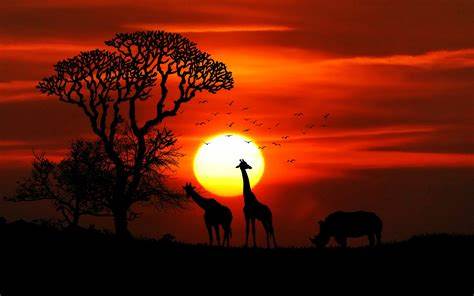Perspective Shift: Notes from Africa on What Matters Most
In June, I spent two weeks in Tanzania with my eight-year-old son, Evan, and extended family to celebrate my brother’s sixtieth birthday. In that physically and emotionally demanding environment, I admired sides of Evan’s personality that I hadn’t seen before. And I myself experienced a perspective-shifting reprieve from the toxicity and ugliness of so much of contemporary reality back home.
I gained new insight into what matters in life.
Hakuna Matata
In Tanzania, where the average monthly income is around $170, poverty is apparent everywhere. But so is the spirit of generosity, gift-giving, and celebration. The song “Hakuna Matata,” made famous by “The Lion King,” is adapted from a well-known Tanzanian song called Jambo Hakuna Matata, Swahili for “There’s no problem.”
Listening to that song being performed at the coffee lodge on the base of Mount Kilimanjaro where we stayed, I, too, was momentarily transported to a world without problems.
I observed boys and girls the same age as Evan carrying baskets of bananas and maize along the dirt village roads. With more than a hint of impish glee, I eagerly pointed them out to Evan and told him that in Africa, children his age are expected to contribute to the family by working.
“I work,” he responded with his own brand of devilishness. “I carry my plates to the sink.” But I knew that he knew what I meant.
One hot afternoon, we visited a local village school with curious, smiling children seated on rickety wooden benches atop an uneven mud floor in a room without lights. Evan and his cousins later joined them in a game of soccer, having brought soccer balls as gifts.
Watching the kids playing together—Evan and his cousins in their high-performance tennis shoes and the Tanzanians in their sandals that flew high into the air every time they kicked the ball—was a touching reminder that children are children everywhere.
Visitors in The Animals’ Africa Home
We also visited the Serengeti National Park, about the size of the state of Connecticut that stretches across northern Tanzania and southwest Kenya. We flew there by plane and drove another two hours in a safari jeep along unmarked dirt roads that the guide knew by heart. We arrived at our destination at sunset, which is brief and heart-stopping near the equator.
To experience the sunset over the African savanna is to know, for a few mesmerizing moments, what it must have felt like to live in the Bible.
Despite such beauty, I felt vulnerable deep inside this vast foreign wilderness unlike any I’d ever known. This was the home of the elephants and lions and hyenas, the cape buffalo and zebras and giraffes and hippos.
Visitors in their home, we respected their boundaries and lived by their rules. Failure to do so has consequences. You don’t walk to your room after dusk without an armed escort. A few weeks before we arrived, an impala had been chased at night onto the property by a hungry leopard and drowned in the pool.
Face to Face with African Elephants
On one early morning game drive our caravan of four vehicles stopped to observe a herd of elephants grazing and drinking and playing in the distance. Then they looked in our direction and spontaneously organized themselves into a long two-by-two column led by the matriarch. Unperturbed, they walked confidently toward us.
I grew nervous, but the guide assured me that their body language suggested they were relaxed. Too relaxed for my comfort, though: With places to go and extended family to see, the elephants had no intention of walking around us. So two of the jeeps from our caravan made room for them to cross the road.
They were so close now that I saw the pupils of their wise, wary eyes hovering above the raised jeep roof. I heard their breathing and the heavy thumping of their enormous feet on the ground. I felt the breeze from their gently flapping ears.
I thought to myself: What did these majestic creatures think about the gawking, whispering, photo-snapping beings a fiftieth of their size sitting or standing inside our vehicle?
Life Through an African Elephant’s Eyes
They weren’t thinking about us at all, the guide said later. They register our jeep as nothing more than a slightly intriguing, unimpressive rectangular inorganic object they could flip over like a tin box if necessary. But it was not necessary—as long as we remained inside.
Should one of us hazard an exit from the vehicle, however, an elephant would immediately identify the person as a living organism, and an odd one at that: a hominid with miniscule ears standing upright on two tiny limbs. Millennia of natural instinct would then kick in, suggesting to the elephant that this puny creature is, in fact, the most dangerous predator on the African continent.
If there are calves around, as there were on that day, the matriarch, just to be safe, might go ahead and snuff out the little creature’s life before resuming her daily activities unflustered. Such behavior is as natural to her as eating, mating, socializing, and leading. It is life to her.
There is a terrifying beauty and clarifying simplicity to life on the African savanna.
Back home now and engulfed once again in a country in the midst of social and spiritual disarray, I think to myself: What would the elephants do?
They would trumpet and play and socialize. They would lead and protect. They would march confidently on.
***



